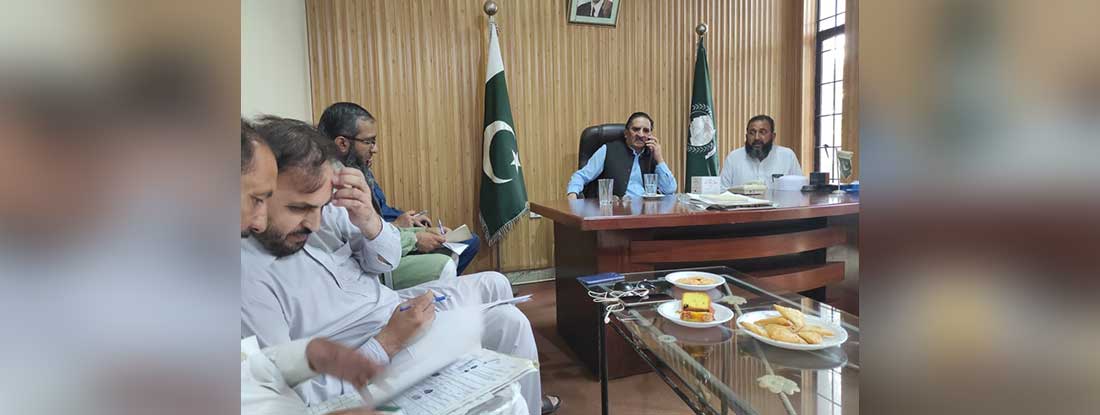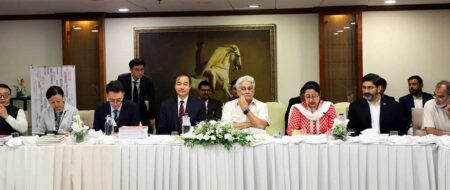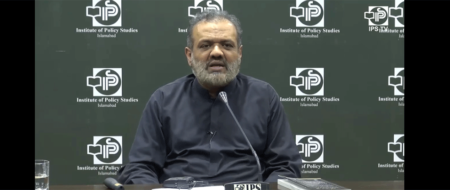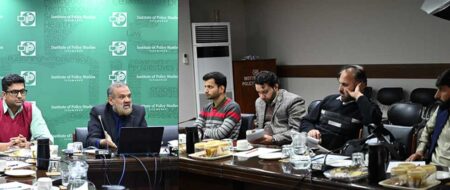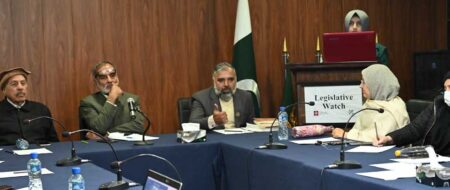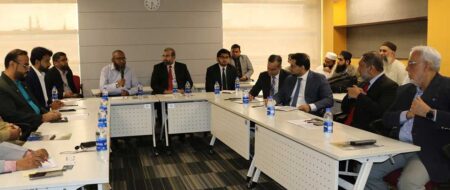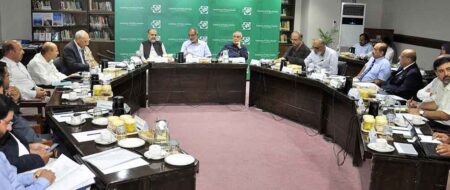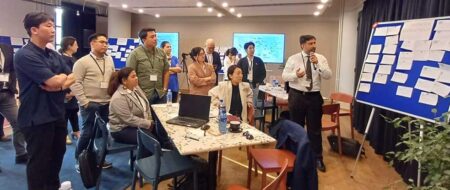IPS team studies Zakat and Ushr administration in three districts of Khyber Pakhtunkhwa
A four-member delegation from IPS visited Peshawar, Bannu and Abbottabad from July 25-29, 2022 with a view to understand the on-ground administration of Zakat and Ushr processes in three districts of Khyber Pakhtunkhwa.
The visiting delegation comprised Dr Salman Ahmed Shaikh, principal investigator, Islamic Social Finance for Social Protection Study, Dr Anwar Shah, co-principal investigator, Islamic Social Finance for Social Protection Study, Muhammad Wali Farooqi, research officer, IPS and Mir Afzal, junior research associate at IPS.
At each of these three districts, official district Zakat administration including District Zakat Officers, Auditors, Group Secretaries and Local Zakat Committee Chairmen also came at the meeting point.
In Peshawar, district Zakat administration of adjacent areas, such as Khyber came along. Similarly, at Bannu, district Zakat administration of adjacent areas, such as DI Khan and South Waziristan also joined. Finally, at Abbottabad, district Zakat administration of adjacent areas, such as Haripur and Mansehra also visited. Hence, at three main meeting points, district Zakat administration of eight districts was interviewed by the IPS team.
At the start of the visit, the IPS team was welcomed at the headquarter of Zakat and Ushr Division where the team met Secretary Nasheeta Maryam Mohsin, Additional Secretary Jahanzeb Khan, Deputy Secretary Syed Mubashir Raza, Deputy Director IT Muhammad Azam and Section In-charge ZMIS Jamil Afridi. At the Headquarter, the team was briefed about the core structure and administration of the Department.
The IPS team then proceeded for field visits of District Zakat Committee offices in three districts, in Peshawar on July 26, Bannu on July 27 and Abbottabad on July 29, 2022. During the field visits, the IPS team extensively interviewed District Zakat Officers, Audit Staff including Audit Officer, Auditor and Audit Assistant, Group Secretaries/Field Clerks, Local Zakat Committee Chairmen and beneficiaries.
The team also reviewed and inspected Auditor’s report, registers such as LZ-11, LZ-12, LZ-13, LZ-14 and LZ-19, annual reports, Istihqaq forms and other related documents.
The extensive interviews revealed hurdles in administration including political influences, low staff salaries of group secretaries and audit staff, low autonomy, delay in receipt of payment to the district, complex documentary requirements and non-retention of unutilized fund in the district even if it is due to technical reasons. The beneficiaries highlighted high shoe-leather cost in visiting branches and non-cooperation of branch staff. Local Zakat Committee chairmen unanimously urged that if more forms are asked from them, the department shall not refuse cases other than those which are refused on the ground of duplication from BISP. After taking data and verification of Istihqaq, all forms must be entertained or the Department shall not be asking for two times the forms as compared to the number of forms they intend to process for payment.
Audit staff and group secretaries complained about low salaries and very little time given for audit. Due to no travel allowance and meager salaries, it was almost impossible for them to conduct field inspections to properly audit beneficiaries living in far flung areas. Audit staff also complained about independence since their salary checks are signed by the District Zakat Officer who also sends their performance appraisal. On the other hand, the audit staff is also supposed to audit them. Charges taken by bank in issuing checkbook and bank statement along with hurdles in opening bank account were also highlighted. Since the District Zakat Chairmen are politically appointed, often, the Local Zakat Committees get politicized as well.
The visit revealed these and other significant obstacles and helped the IPS team in their ongoing research to come up with more informed policy suggestions.
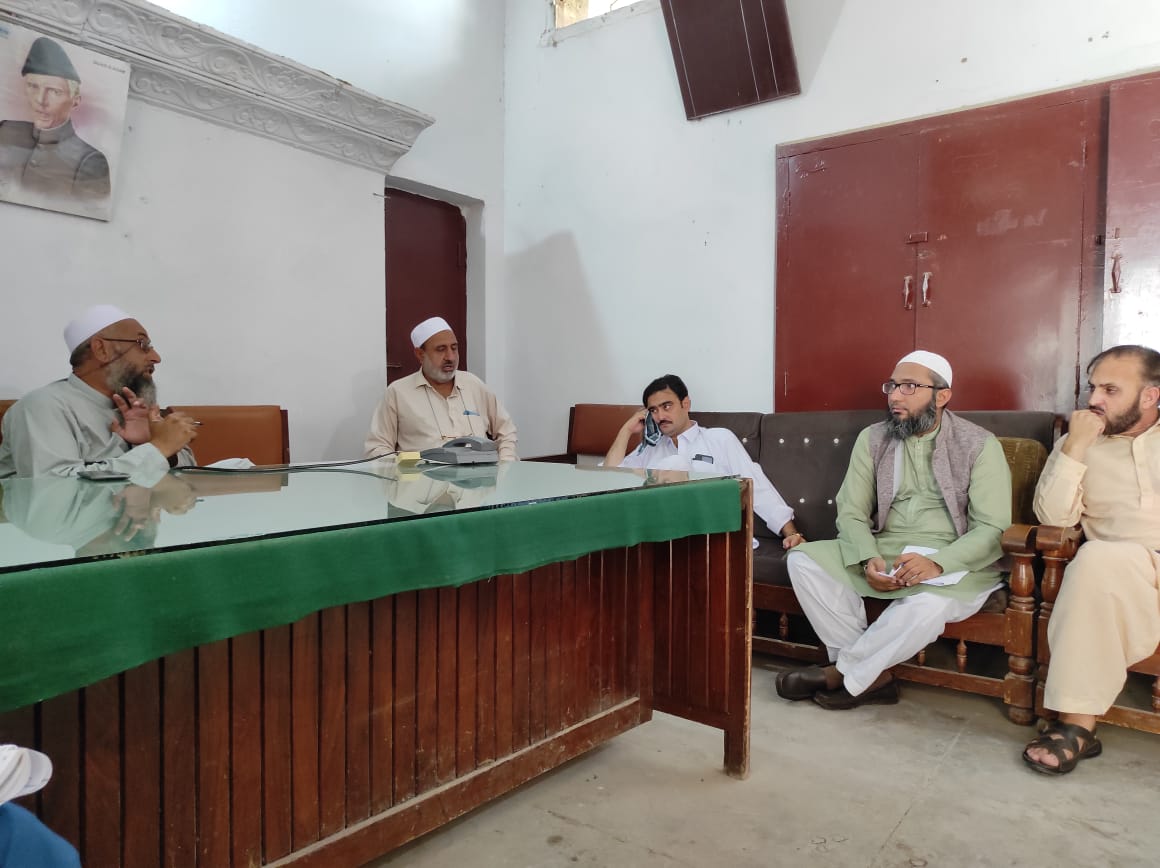 |
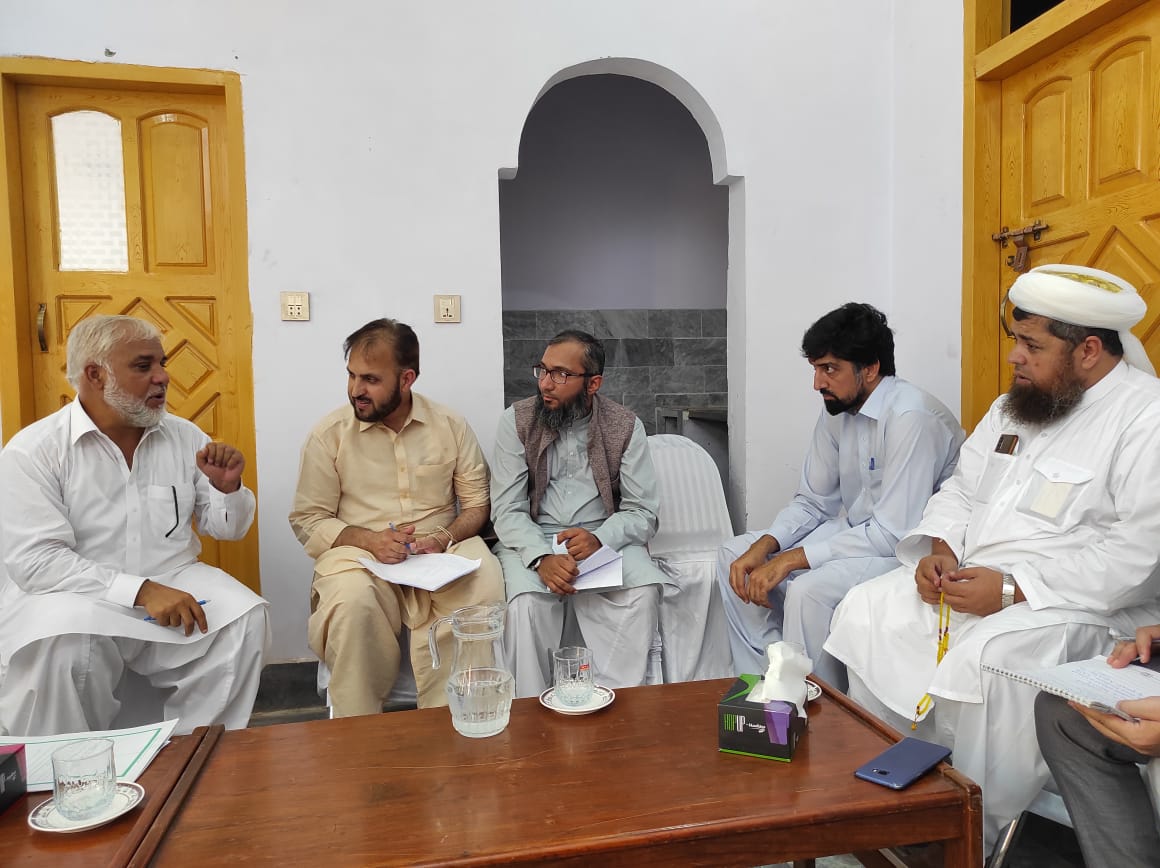 |


